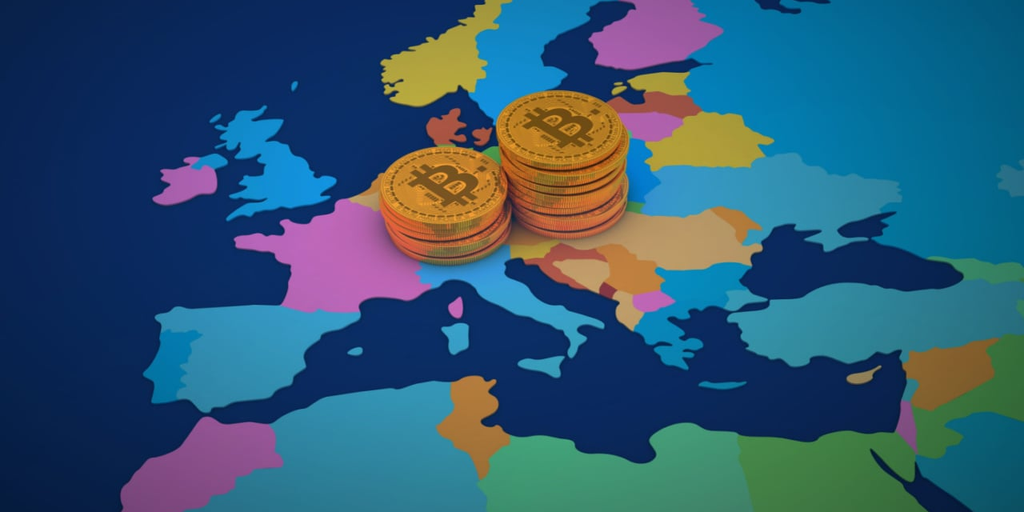With the SEC taking aim at a host of big brand crypto firms, some CEOs are looking across the Atlantic to reopen shop.
Coinbase CEO Brian Armstrong, for example, recently said he’s considering doing precisely this. Similarly, Ripple CEO Brad Garlinghouse told CNBC on Thursday that “confusing” regulations in the U.S. will push more crypto companies to leave.
“Frankly, it’s why you’re seeing entrepreneurship and investment flowing into other jurisdictions—and certainly Europe has been a significant beneficiary of the confusion that has existed in the U.S.,” he said.
It’s no coincidence either that Europe has emerged as a potential winner amid the chaos, especially after the bloc passed clearer crypto rules via its Markets in Crypto Assets (MiCA) guidelines earlier this month.
Looking closer, French authorities, in particular, are also well aware of this potential and are keen to promote their regulatory framework to attract American companies.
“In France, we have the advantage of having a clear framework,” Owen Simonin, CEO of Meria, a crypto investment platform based in Metz, France, told Decrypt. “France is likely going to transpose its framework to the European level with the new CASP regime. It offers a clear, defined framework that encourages major international companies to come to us, thereby opening up the European market to them.”
Benoît de Juvigny, the Secretary General of France’s Autorité des Marchés Financiers (AMF), has already extended a welcoming hand to American firms to take advantage of French and future European crypto regulations.
“In France, we are proud to be pioneers with the crypto service asset provider regime, known as PSAN, that was legislated in 2019,” he told reporters Wednesday. “American players who want to benefit from the French regime in the short term, and from the European arrangements starting 2025, are clearly welcome. We maintain good relations and active discussions with our U.S. counterparts.”
With the introduction of MiCA rules by European legislators next year, the CASP (Crypto Asset Service Provider) status will be implemented. This is the equivalent of PSAN (“Prestataire de Services sur Actifs Numériques” or “Digital asset services provider”) in France but at the European level. In the United States, this status is best understood as a Virtual Asset Service Provider (VASP)
With the new European status modeled after the French one, it allows them to comply with the upcoming European regulations from now on.
Vive la crypto
The recent adoption of MiCA has prompted numerous firms to prepare for the new regulations, with France currently hosting 72 registered crypto companies, a number that’s expected to rise.
Circle, the firm behind the industry’s second-largest stablecoin by market capitalization, is seeking dual registration in France to localize its flagship product, EUROC, for the European market. Other key crypto companies such as Binance, Crypto.com, eToro, and Digital Currency Group’s Luno have also registered with the AMF.
Crypto platforms can currently operate in France without a full license until 2026, allowing them to provide services with minimal checks.
However, by January 2024, these companies will need to acquire a full license to operate, even before the EU’s regulations take effect.
“Although the PSAN registration is relatively light, the approval that will necessitate reinforced registration at the European level will pose a significant responsibility for all companies,” said Simonin. “This is a double-edged sword; while it will provide structure and limit abuse, it might also impede innovation. However, a structured framework is essential in an environment that poses substantial risks to individual savings.”
As part of the transitional measures implemented earlier this year in anticipation of MiCA, companies submitting applications from July onwards will be subjected to an enhanced registration process. This process will necessitate evidence of robust IT systems and a conflict of interest policy.
The MiCA regulations, slated for implementation in 2025, will confer rights to serve the entire European market and will encompass a broader range of services including crypto investment, advice, and portfolio management.
Crypto rules clear, but not perfect
Other aspects still need to be clarified by the French authorities, though, and new regulations should be issued in the future.
“Many topics have not yet been addressed, such as NFTs or DeFi, and we still have a relatively flexible framework,” said Simonin. “The major point to discuss in the short term is taxation. We have the PACTE law which offers some advantages, but it proposes taxation in case of profits, without allowing for the offsetting of losses. However, in France, we have a regime that allows us not to pay taxes even in the case of capital gains, as long as we stay in crypto. Whether one likes French regulation or not, it has the merit of being clear.”
Though there are still a few question marks, regulators in France, with the aid of EU-wide crypto rules, are taking clearer action than their American counterparts.
And in a market that moves as fast as crypto, that may be enough to win over at least a few businesses.
Credit: Source link




























